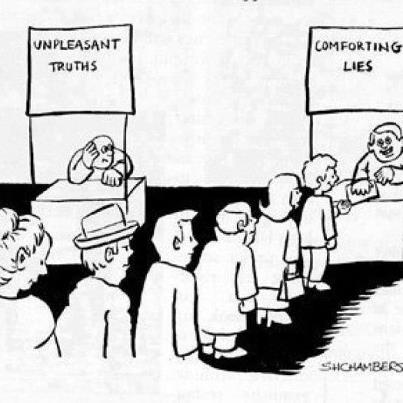The coverage of the religiously unaffiliated continues on NPR. Today they have a post on how we deal with loss. They have interviews with different people, reflecting some of the diversity among us.
The first issue that jumps at the reader is harassment. Somehow the believers can’t less us die, and mourn, in peace; there is no understanding that we are different.
“Then I found out they had given him his last rites,” she says.
That wasn’t a surprise, since Via Christi is a Catholic hospital. But even after Fiore announced that Eric would not want anyone praying for him, a priest hovered and prayed, day after day. Finally, she kicked the priest out.
“I think that was a turning point in the whole religion thing for me,” Fiore recalls. “That was the point when I said, ‘You know what?’ — and I told Eric this when he was laying there on the bed — I said, ‘Eric, I don’t care anymore that we have to pretend not to be atheist.’
” ‘We respected people’s religions our whole entire life and I can’t do it anymore,’ ” she told him. ” ‘People are going to respect you now, and you told me you didn’t want them praying over you, and that’s it.’ ”
Fiore told everyone that she and Eric were atheists. And still, as he lingered near death for 36 days, people offered religious consolation. “God has a plan,” they told her. “Eric is going to a better place.”
So we are told to respect other people’s beliefs, but not to expect reciprocity.
And then, there is the element of knowing there will be no reunion with the lost ones.
“I often envy religious people who have that devout faith,” Fiore says. “They know that they’re going to see their … loved ones again when they die. But I don’t believe that. Sometimes, I wish I did.”
And she is not the only one finding this the hard part.
This is something Mari Bailey can understand. She’s parked across from a brown stucco house in Phoenix. And while it isn’t her home, she knows it well.
“When you walk in, there’s a kitchen, a very small kitchen,” Bailey says. “And that’s where Michael was shot.”
Her only son, Michael, was 21, fresh out of the Navy and newly enrolled in culinary school when he was killed in that house in August 2004. Bailey’s last memory of her son is vivid, hopeful.
“For the sake of Michael, I just need to believe that there is more to life beyond death,” she says. “Because if it’s not, than that means that my son’s life is over completely.”
And that is how religion thrives: making promises it cannot deliver and calling them “hope”.
But there is one thing we won’t miss at times of grief: preachers.
One theme is clear, Cacciatore says: Religious leaders are really bad at comforting people in grief. She surveyed more than 550 families, asking whom they found the most helpful during those first terrible days: first responders, doctors and nurses, social workers, psychologists, funeral directors or spiritual leaders.
“And of all of those, the spiritual leaders actually came in last,” she says.

